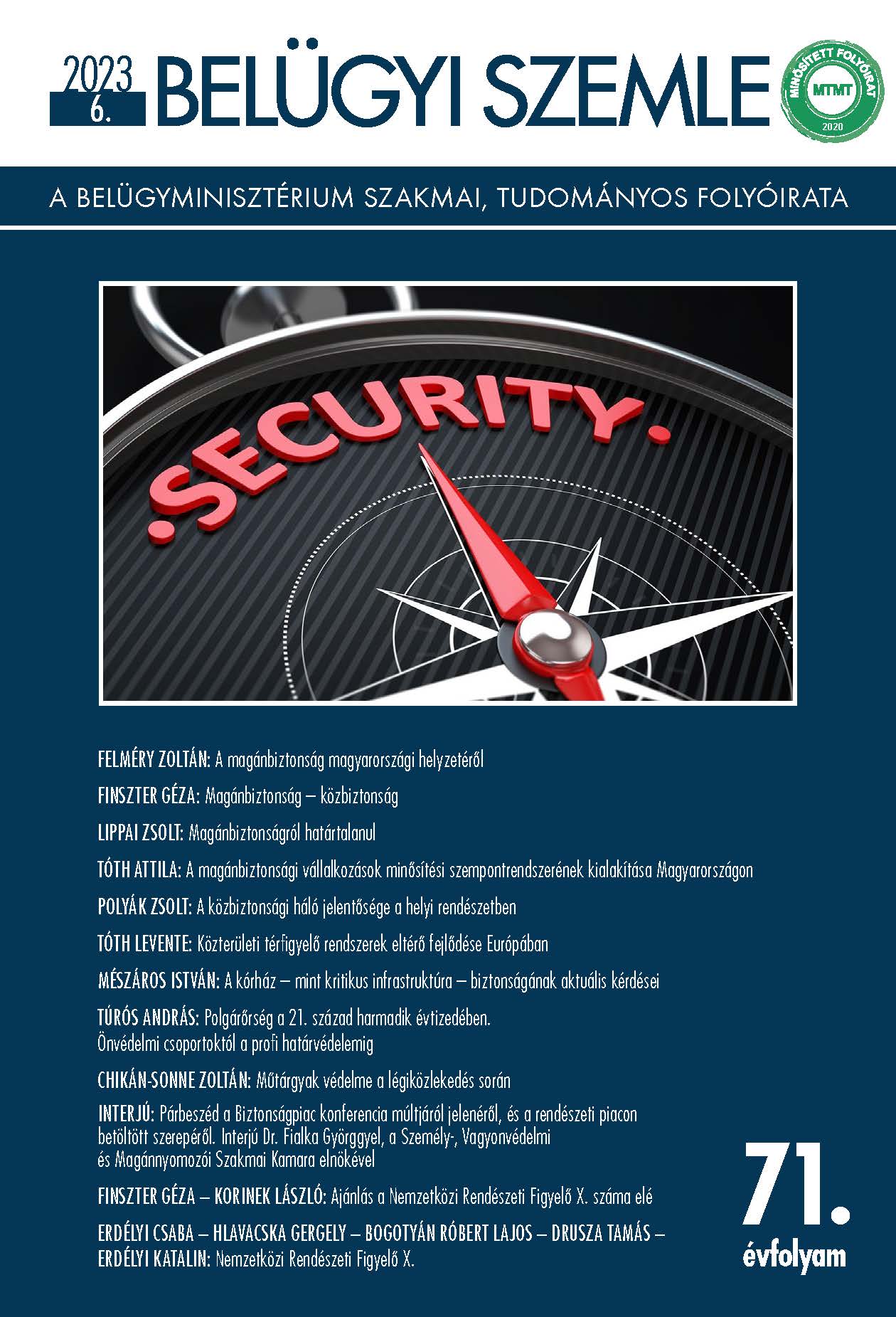Abstract
Aim: The editors of International Law Enforcement Observer consider it their main task to provide an insight into the current international law enforcement literature. This endeavour sometimes allows for the grouping of closely related topics, while at other times it is more a matter of diversity. This time, the reader is confronted with research issues that are far removed from each other. The themes range from the reintegration of former prisoners to organised crime and the technical challenges shaping literacy.
Methodology: Foreign sources often contain messages that can be considered by domestic researchers. The success of reintegration depends in no small measure on the solidarity of civil society, which – as the Dutch example cited by Csaba Erdélyi demonstrates – is sometimes barely perceptible. The study of American organised crime in the 1930s can provide lessons that are still valid today, because Gergely Hlavacska's work provides insights into the methodology of network analysis. This review also demonstrates that network theory can be a scientific tool for understanding social reality, but it can also lead to the creation of controversial conspiracy theories.
Findings: All the foreign research presented confirms that there is no area of law enforcement, like justice, that is untouched by the technological revolutions of the digital age. While the 'revolutionary' transformation of information flows is creating invaluable assets for law enforcement, there are also obstacles. We quote from Tamás Drusza's review of the US experience: „The authors addressed in detail in this section the problem that mobile internet coverage made daily use of the system significantly more difficult because it slowed down workflow, so officers spent more time on administration and less time on their core business.” Katalin Erdélyi, who has drawn on her work as a forensic expert abroad, also warns that technical innovations are a challenge for expertise: „The competence of experts to examine signatures professionally remains a matter of debate, particularly in relation to documents produced by technical forgery. If the expert is not competent to determine the presence or absence of signs of technical forgery, if the expert has difficulty in examining documents produced using computer technology, he or she is not competent and failure to do so will lead to serious professional errors.”
Value: Róbert Bogotyán's review discusses the types of law enforcement detention that do not fall under the category of coercive measures in criminal proceedings and are mostly part of the immigration measures related to illegal migration. „The personal interviews with detainees held for deportation and administrative detainees show that detention is a difficult and stressful situation for both types of detainees. However, it was also found that detention for expulsion purposes represents a significantly greater interference in the lives of the persons concerned, associated with a negative outlook.” The main lesson to be drawn from this research is that the most effective means of resolving the tensions associated with deprivation of liberty is full respect for the humanity-based principles of due process in the daily practice of law enforcement authorities.

